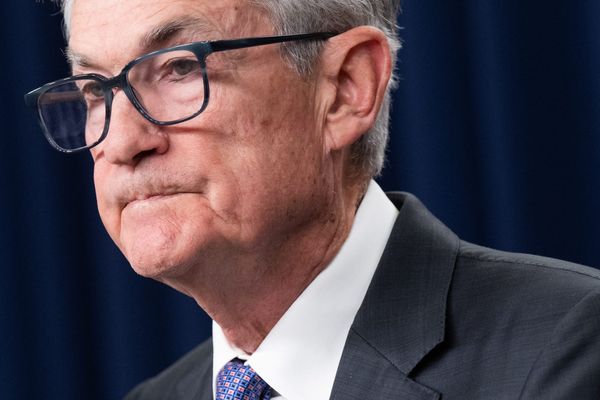
Derby isn’t known as a tourist hotspot. Often overshadowed by nearby Nottingham, bypassed on the road to the Peak District, locals here know the hotels are quietest at weekends when visiting business folk leave.
That hasn’t stopped its leaders making a tilt to become UK City of Culture 2025. Bidding to reinvigorate civic pride and economic growth after the fallout from Covid-19, the aim here is to showcase the city’s unique industrial heritage as a crucible for the art of manufacturing.
“It’s our version of the Olympics,” says Adam Buss, the chief executive of the city’s Quad arts venue and bid director for the 2025 campaign. “We’ve always lived a bit in the shadows – maybe people go past on the M1, or the train. But what we want to say with city of culture is ‘Stop! Come here.’”
Pitting itself against seven other places – including Southampton, Bradford, Stirling and the entire county of Cornwall – Derby hopes to replicate some of the economic growth, investment and feelgood factor enjoyed by previous winners such as Hull and Derry-Londonderry.
With final bids for the longlisted entrants due this week, it comes as ministers prepare to launch the long-awaited “levelling up” blueprint for places like Derby – with a white paper from Michael Gove’s department expected within days.
As the city puts its cultural offering in the shop window, there is also cause for concern. Its most high-profile attraction – Derby County football club – is in trouble, at risk of collapsing into liquidation with unsustainable debts.

“It would be catastrophic if something significant happened,” says Buss. Losing the Championship side managed by Wayne Rooney would hit the city’s cultural heft on the national stage. “It should be a wake-up call for the UK and the rest of the football world.”
Locals know the city of culture bid might raise one or two eyebrows, coming from a place often bypassed by big-name musicians on tour. Most big acts play at Nottingham Rock City, requiring a trip down Brian Clough Way – a stretch of the A52 named after the football manager celebrated for bringing success to both cities despite a fierce rivalry between the two. Derby’s largest venue – the Assembly Rooms – has remained derelict since fire ripped through the brutalist building in 2014.
But critics miss the point, says Buss. “It’s a bit like Hull. A lot of their messaging said, ‘It’s OK to criticise us, but do you know us? Have you been here? Do you understand what’s going on?’”
Rather than a prize for the most vibrant place in Britain, the city of culture award is best understood as an arts-led catalyst for rebooting the fortunes of overlooked places that have untapped potential.
In Derby, the plan is to show that its industry and artistic prowess are vital ingredients for economic and cultural success, and why some of Britain’s biggest manufacturers – including Rolls-Royce, Toyota and Alstom – still call the place home long after John Lombe built the world’s first fully mechanised factory here on the River Derwent in the 1700s.
Chris Cholerton, president of civil aerospace at Rolls-Royce, who sits on the global firm’s executive leadership team, is Derby born and bred. A season ticket holder at Pride Park, he fears for the football club’s future.
“We sometimes joke – and it is probably just a joke – that the productivity on Monday mornings at the factory is always far higher when Derby has won. We’re a football city. It’s a big piece of our fabric, so we’re hoping it all works out.”
The engineering giant has called Derby home since 1908, employing about 12,000 people to design, manufacture and test its Trent jet engines built to propel Airbus and Boeing passenger aircraft around the world.
Rolls suffered an unprecedented hit during the pandemic as planes were grounded, forcing it to cut 9,000 jobs globally – including in Derby. Production volumes have halved, but the firm still picked its historic home to consolidate to when making cuts to save money.

In the vast engine assembly hall, equipment used to put together the jet turbine blades – each thin twist of metal harnesses the power of an F1 car – is waiting to be put to use after being shipped back from Singapore, where Rolls closed a plant last year in a cost-saving drive.
While the local arts scene isn’t a big reason to come back, Cholerton says culture can play an important role.
“As we go forward in decarbonising aviation, it won’t be static; we need to attract more engineers. That continuing ability to attract talent and retain it – with both a great working environment and a great city to live in – is very powerful.”
Manufacturing still accounts for a quarter of Derby’s economy, well above the national average and more than double that of other industrial revolution crucibles such as Manchester, Glasgow or Birmingham. In a place where Joseph Wright expressed the industrial age through painting in the 18th century, that is a reminder that culture takes many forms and isn’t always the type found in a grand gallery or opulent theatre.
Down the road at Alstom, the French multinational manufacturer is building monorail carriages destined for the Cairo metro in engine sheds dating back to 1876. As one of Britain’s biggest railway hubs, the firm uses its base here to design and manufacture its latest models; including those for HS2 and London’s new Elizabeth line.
Nick Crossfield, Alstom’s UK and Ireland managing director, says younger employees increasingly choose where they want to work before looking at the industry they want to work in. Sprucing up Derby’s cultural sites will be key to attracting coders and developers, as well as graphic designers, to a city that already has status in the gaming industry as the birthplace of Lara Croft: Tomb Raider.
“The facilities, the institutions, the profile that Derby has is really important to us,” he says.
At the vast Toyota plant in Burnaston on the outskirts of the city it’s a similar story. Tim Freeman, the deputy managing director of Toyota Manufacturing UK, says investing in culture and arts in the city will create an environment to attract new talent.
Most of the cars trundling along the miles of conveyer belt are left-hand drive, destined for export to the EU, despite tougher barriers to business after Brexit. Though a supporter of Derby’s arch rivals, Nottingham Forest, he views the city of culture bid as an opportunity to help the city’s recovery from the pandemic.
“Derby, like many other cities has been badly impacted in terms of their economy by Covid. And I think through this activity they’re engaging in I think that can help regenerate some economic growth.”
While hopes are high for the cultural bid, Derby has suffered years of austerity directed from Westminster, with the local council being forced to cut 50 jobs to find budget savings of more than £13m next year.

Towns and cities outside London and the south-east have had harsher cuts to culture, with council funding for arts down 38.5% in a decade. According to the Fabian Society, Arts Council England National Lottery funds contributed the equivalent of £50.40 per person to organisations based in London, compared with £21.26 per head for the rest of England.
There are no guarantees of extra lottery money for the winning city of culture bid. But previous title-holder Coventry secured £16m of government funding, while Hull received £15m. A government spokesperson said the format of the 2025 competition hadn’t changed, while it could also be a catalyst for inward investment.
Buss says the expectation is that funders will come forward. However, his biggest hope is that Derby can become a focal point for tackling big cultural and economic challenges facing the UK in the 21st century, from climate change to technology. “The start of the industrial revolution happened here. But if you ask people where they’d go in the country for answers to big challenges, they might not say Derby. City of culture can give us that beacon.”







